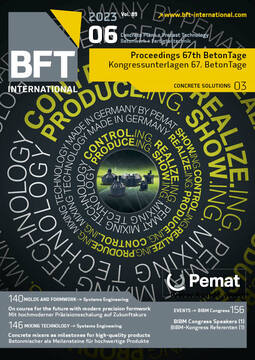Processing of secondary raw materials for
cement substitution
The processing and use of secondary raw materials opens up a huge potential for meeting the constantly increasing demand for raw materials in the construction industry. Besides saving primary resources, mineral waste can be avoided by making such materials
available for the circular economy. In addition, considerable greenhouse gas emission savings are required in cement production with a view to the growing demand for concrete and the need to meet the climate targets. To achieve these goals, waste materials containing
clay can be used as cement clinker substitutes, which requires general and global concepts for the processing and use of locally available secondary raw materials.
Clay-containing waste materials from the minerals industry exhibit a high degree of inhomogeneity, depending on their origin and extraction site. This is why they must first be characterized before being fed into cement and concrete production. Based on this characterization, the waste materials can be thermally activated. Depending on their chemical and mineralogical composition, cement
substitution rates will be different and must be considered very carefully in order to produce concretes with sufficient durability.
Mortar tests showed that composite cements with thermally
activated clay-containing waste materials substituting 30 % of the cement can exhibit compressive strengths equivalent to those of mortars containing only the basic cements. In terms of durability, these composite cements are comparable to cements with fly ash or granulated blast-furnace slag, which achieve lower carbonation resistance at the same compressive strength. Generally speaking, such composite cements can thus not only contribute to conserving primary raw materials and our environment but also reduce carbon emissions in cement production compared to currently used cements while providing similar performance characteristics.



